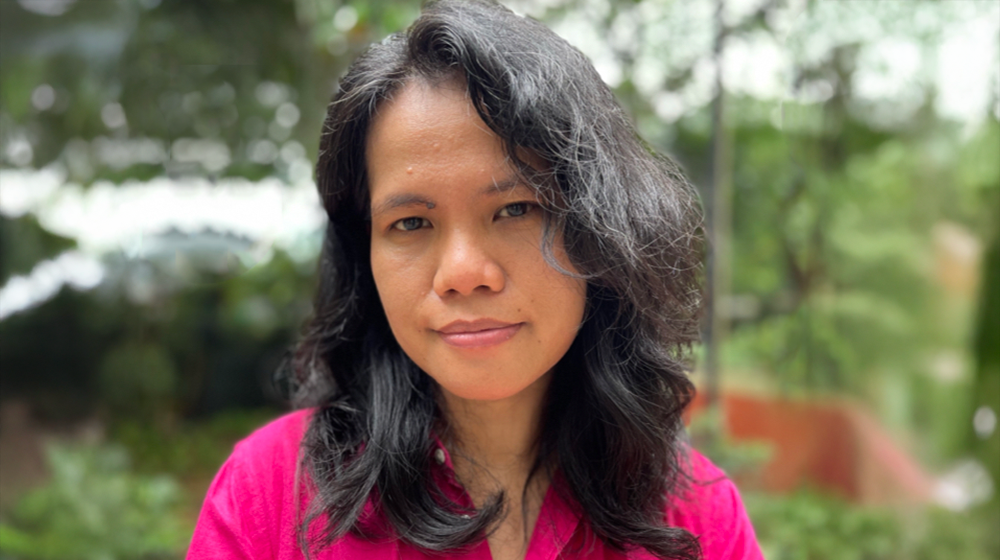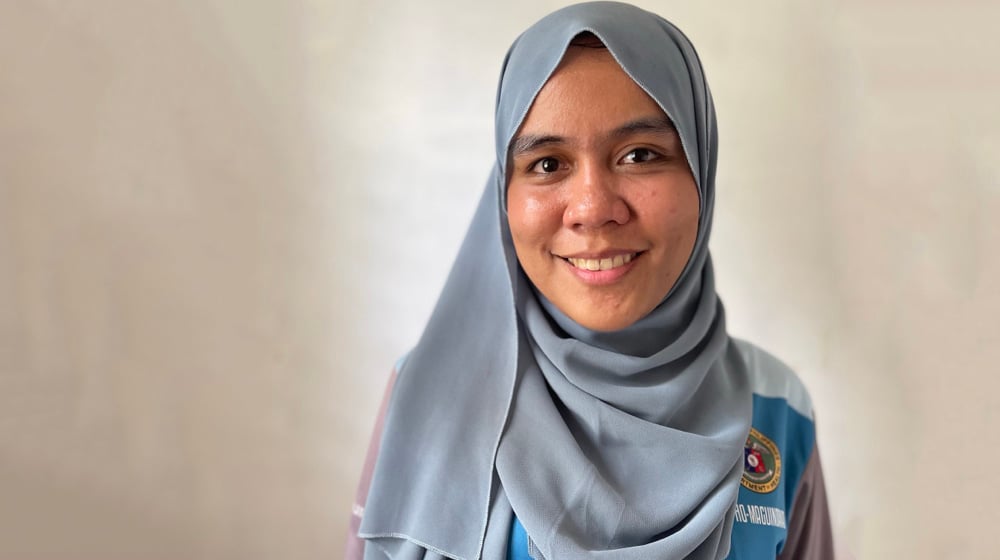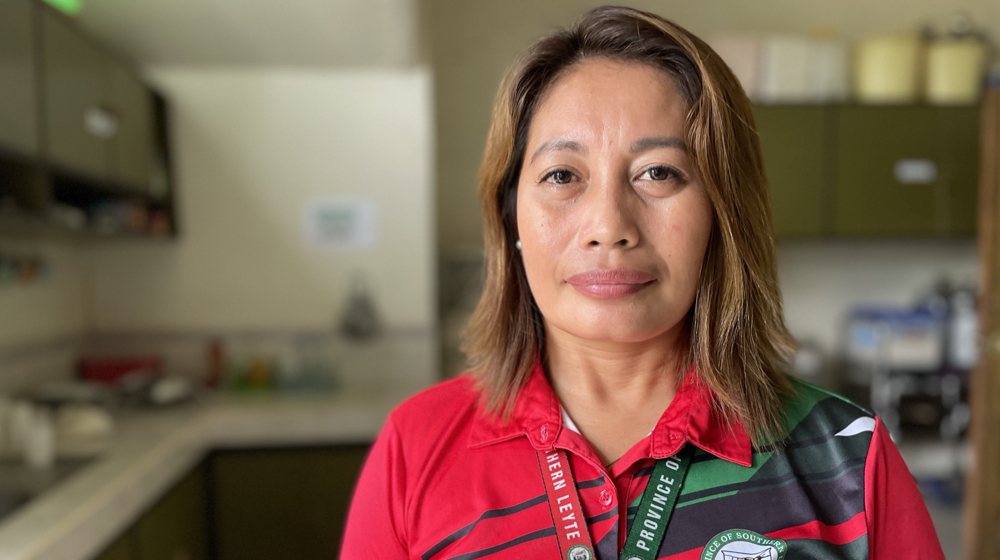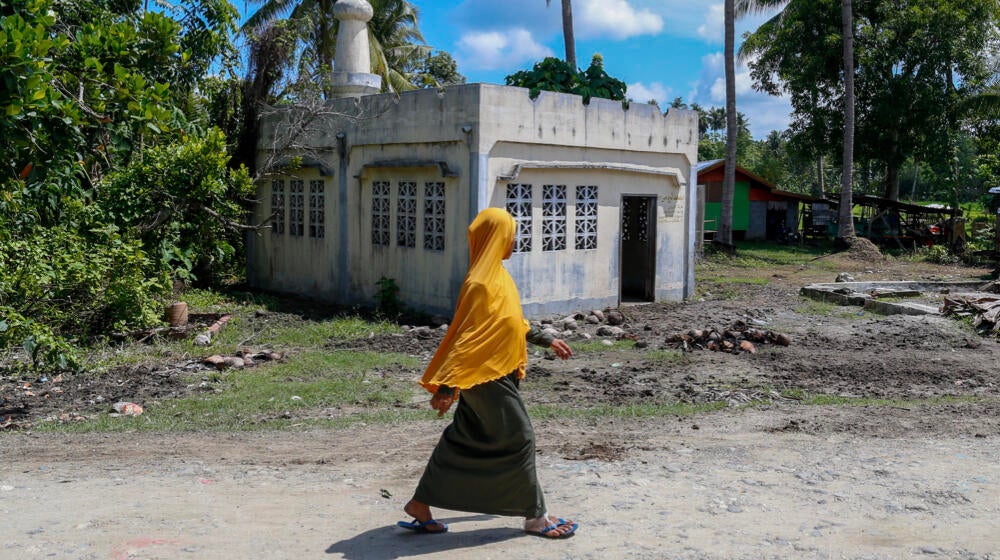The Philippines is on the frontline of a climate crisis, with 43 million displaced in recent years due to storms amid the worsening effects of climate change. Wave after wave of disasters is holding communities back and the storms are crippling crucial social services.
UNFPA is responding to strengthen gender-based violence support across the country, especially in areas that are vulnerable to extreme storms. Long-term partnerships on the ground have allowed us to create women friendly spaces in protracted crises that are safe havens from gender-based violence and key entry points for women to connect with a supportive community of fellow women.
Meet 3 frontline heroes helping women and girls cope with gender-based violence in their communities, before, during and after disasters.

Frances Escape is a musician based in Quezon City on the outskirts of the Philippine capital of Manila. She runs an all-women percussion band with young people from her community who are survivors of gender-based violence and abuse.
“I joined a lot of bands when I was younger,” Frances recalls. “I found that guys in the bands always wanted to get drunk, meet girls and be a rockstar. This got in the way of music.”
Frances and her group Perxx Commune received a Youth Start-up Fund as part of a UNFPA initiative addressing gender-based violence called Project Brave. The project assists at-risk women, children and adolescents with mental health and psychosocial services and protection from gender-based violence during the recovery from the COVID-19 pandemic.
“I wanted to create a space for these young women to be able to express themselves through music. It is all about feeling a sense of solidarity and starting the process of healing in a supported group.”

Sittie Nayla is a nurse in Mindanao in the southern part of the Philippines. Through UNFPA support, she is trained in mental health and psychosocial support for survivors of gender-based violence. There is a Women-Friendly Space on the same grounds as her health centre. The safe space in a semi-permanent structure allows for immediate referrals and discrete discussions or counselling to help the community cope with the stress of protracted conflict, displacement and climate disasters.
Sittie says there has been a increase in teenage suicide in their community in recent years. She says the stress of early marriage, traditional cultural expectations and the financial uncertainty that comes from displacement from ongoing conflict between armed militant groups can push some girls over the edge.
Frontline responders like Sittie work together with the community facilitators in the Women-Friendly Spaces to reach a wide network of villages to ensure that the women and girls who need mental health support can access help in a way that responds to the issues they are facing in the ongoing humanitarian crisis in Mindanao.

Joy Viola is a social worker at the Child and Youth Crisis Centre in Southern Leyte in the Philippines. She helps run a home that is a safe place for children, mainly girls, who are survivors of gender-based violence and abuse.
“We try to recreate a home environment here and all the children have domestic activities to do so that we can give them a sense of normalcy and help them recover from what they’ve been through.”
Children stay in the centre for weeks and sometimes months while their legal cases are resolved. They remain at the house while social services find more permanent solutions for the survivors.
Joy says that climate disasters create greater vulnerabilities for young people in her community, as the province of Southern Leyte is regularly hit by super typhoons. After a severe storm, parents might seek work abroad in order to earn more money to help the family rebuild. This leaves children at risk, often in the care of neighbours or extended family.
She helps children, mainly girls, prepare for testimony in court and gives them the courage to speak their truth and seek justice. Despite limited resources, the legal system is becoming a more child friendly process. Joy says there are still gaps and lawyers for accused abusers are able to aggressively cross examine children survivors in court. She says there is still a long way to go, but with UNFPA support, the Child and Youth Crisis Centre has been able to increase its service and provide training and coordination with community social workers and police.
Learn more


